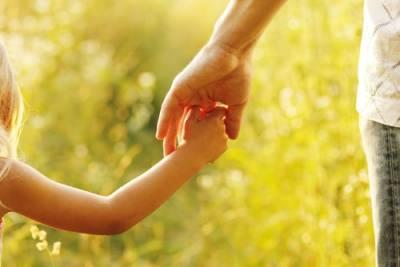Recent Blog Posts
How is Child Support Determined When Parents Have 50/50 Custody?
 In 2022, child support is calculated based on both of the parents’ net incomes. If the parents have a relatively equal amount of parenting time, the child support obligation is modified accordingly. Read on to learn more about how child support is calculated if parents share custody 50/50.
In 2022, child support is calculated based on both of the parents’ net incomes. If the parents have a relatively equal amount of parenting time, the child support obligation is modified accordingly. Read on to learn more about how child support is calculated if parents share custody 50/50.
Parenting Time and Shared Parenting Scenarios
Physical custody of a child is now referred to as parenting time in Illinois, but the term custody is still used in informal settings. Divorcing parents are permitted and encouraged to develop a parenting time schedule that works for them. For example, in some families, one parent has the children on weekends and the other on weekdays. In other families, children stay with one parent the first and third weeks of the month and the other parent on the second and forth weeks of the month.
A shared parenting arrangement occurs when both parents have the children more than 40 percent of the time. This works out to 146 overnight visits a year. If you and your child’s other parent have 50/50 or near 50/50 custody, this is considered a shared parenting arrangement. It is important for you to understand how shared parenting arrangements influence child support obligations.
How Do Divorced Parents Pay For Their Child's College Expenses?
 As high schools finish up their spring semesters, many young people have their sights set on college. As a parent, the prospect of your child attending university can be both exciting and nerve-racking. College gets more and more expensive with each passing year. Average tuition and fees for public schools currently averages over $10,000 for in-state schools and nearly $23,000 for out-of-state schools. Private schools are even more expensive, with an average annual tuition of approximately $38,000.
As high schools finish up their spring semesters, many young people have their sights set on college. As a parent, the prospect of your child attending university can be both exciting and nerve-racking. College gets more and more expensive with each passing year. Average tuition and fees for public schools currently averages over $10,000 for in-state schools and nearly $23,000 for out-of-state schools. Private schools are even more expensive, with an average annual tuition of approximately $38,000.
If you are divorced and your child is nearing college age, it is important to understand how Illinois law handles the division of college tuition and related expenses between divorced parents.
Divorced Parents May Be Required to Contribute to College Costs
Many divorced parents in Illinois are surprised to learn that the state can require parents to contribute to their child's college education. Illinois is one of the few states with this type of law on the books. While the constitutionality of the law has been called into question several times, the law still stands.
Can I Get My Marriage Annulled in DuPage County?
 If you were recently married, but you regret it, you may be interested in getting the marriage annulled. Annulment is commonly portrayed in movies and television shows as a quick fix for couples wanting to end their marriage. However, annulment is more complicated than movies would lead you to believe. Annulments are only available in a narrow range of circumstances in Illinois. Couples who do not meet annulment criteria will need to end their marriages through divorce.
If you were recently married, but you regret it, you may be interested in getting the marriage annulled. Annulment is commonly portrayed in movies and television shows as a quick fix for couples wanting to end their marriage. However, annulment is more complicated than movies would lead you to believe. Annulments are only available in a narrow range of circumstances in Illinois. Couples who do not meet annulment criteria will need to end their marriages through divorce.
Annulment Criteria in Illinois
Many people assume that annulment is the same thing as divorce. However, these are completely different legal actions. An annulment declares a marriage invalid and makes it as if the marriage never happened. Divorce terminates a valid marriage.
Annulment is warranted under the following conditions:
-
Lack of consent – Spouses must be of sound mind and enter the marriage consensually. If either spouse was under the influence of alcohol or drugs or experienced a mental health problem that prevented them from consenting to the marriage, the marriage may be invalid.
Finding Hidden Income in a DuPage County Divorce or Child Support Dispute
 Finances are often a key factor in divorce and family law disputes. For the court to make a determination about the division of assets and debts, child support, and other issues, the court needs accurate financial information from both parties. Unfortunately, not everyone is as forthcoming about financial information as they should be. Some people disclose only partial financial information or actively hide assets and income during family law cases to gain an unfair advantage.
Finances are often a key factor in divorce and family law disputes. For the court to make a determination about the division of assets and debts, child support, and other issues, the court needs accurate financial information from both parties. Unfortunately, not everyone is as forthcoming about financial information as they should be. Some people disclose only partial financial information or actively hide assets and income during family law cases to gain an unfair advantage.
If you are involved in a divorce, child support case, or another family law matter and you suspect that another party is lying about income, contact a family law attorney for help. Attorneys have various means of finding undisclosed income and hidden assets so any determination is based on factual financial information.
How People Hide Income in Family Law Cases
The simplest way to hide income in a divorce or family law case is to simply fail to disclose it. Hiding income is much easier for individuals who own businesses or are self-employed. Because there are no payroll stubs showing exactly what they made, they can easily lie about how much money they earn. Some people also get jobs “under the table” that pay cash and do not keep records of payments.
Six Steps to Take Now If You Know Divorce Is On The Horizon
 Marriages end for countless reasons. Some gradually break down over the course of years or decades. Other marriages end abruptly because a spouse has an affair or violates the other spouse’s trust. Sometimes, spouses simply fall out of love. If your marriage has reached the point of no return and divorce is imminent, there are things you can do now to make the divorce process easier.
Marriages end for countless reasons. Some gradually break down over the course of years or decades. Other marriages end abruptly because a spouse has an affair or violates the other spouse’s trust. Sometimes, spouses simply fall out of love. If your marriage has reached the point of no return and divorce is imminent, there are things you can do now to make the divorce process easier.
Preparing for Divorce Can Help Make the Process Go More Smoothly
Divorce is a difficult process to go through, but preparing in advance can help you ready yourself to tackle divorce issues like property division, spousal maintenance, and child-related matters.
If you know that your marriage is beyond saving and you will soon divorce, here are six steps you can take to prepare yourself, your family, and your finances.
-
Gather financial documents – Most divorce issues revolve around money and property. One of the best things you can do to prepare for divorce is to find and organize financial documents such as paystubs, tax returns, mortgage documents, vehicle titles, and credit card statements. Make copies of these documents as they will be needed later in the process.
5 Common Co-Parenting Arguments and How to Prevent Them
 Being a parent is hard regardless of your marital status. But co-parenting kids with an ex comes with additional challenges. If you are planning to divorce or you are an unmarried parent sharing custody of your kids with an ex, you may already have experienced some of these difficulties. Parents may disagree about parenting time schedules, their child's education or participation in extracurricular activities, healthcare, and much more.
Being a parent is hard regardless of your marital status. But co-parenting kids with an ex comes with additional challenges. If you are planning to divorce or you are an unmarried parent sharing custody of your kids with an ex, you may already have experienced some of these difficulties. Parents may disagree about parenting time schedules, their child's education or participation in extracurricular activities, healthcare, and much more.
Every co-parenting relationship is bound to experience problems, but there are steps you can take to lessen co-parenting disagreements.
Disagreements About Child-Related Issues
Parents often have strong opinions about what is best for their children. When parents disagree on what is in their child's best interests, the situation can quickly devolve into an argument.
What Happens at a Hearing For an Order of Protection?
 Domestic violence victims in Illinois have the option to get an order of protection to protect themselves, their children, and their property. A protection order is often the first step in leaving an abusive marriage or relationship. Protection orders can also provide legal protection if the abuse is at the hands of an ex-romantic partner, current or former household member, or family member. Unfortunately, many domestic violence victims are unaware of their rights and options under Illinois law. This leads them to suffer in silence and without the legal protection they need. Read on to learn about protection order hearings and what you can do if you are ready to get a protection order for yourself or a loved one.
Domestic violence victims in Illinois have the option to get an order of protection to protect themselves, their children, and their property. A protection order is often the first step in leaving an abusive marriage or relationship. Protection orders can also provide legal protection if the abuse is at the hands of an ex-romantic partner, current or former household member, or family member. Unfortunately, many domestic violence victims are unaware of their rights and options under Illinois law. This leads them to suffer in silence and without the legal protection they need. Read on to learn about protection order hearings and what you can do if you are ready to get a protection order for yourself or a loved one.
Emergency Protection Orders May Be “Ex Parte” Orders
The first step in seeking legal protection against an abusive or harassing individual is an Emergency Order of Protection (EOP). In Illinois, EOPs are offered on an “ex parte” basis which means that the respondent (the subject of the order) does not need to be present. You can get an EOP from the court based solely on your testimony. The abuser’s presence is not required. Often, domestic violence victims are able to get an EOP on the same day on which they requested it.
Am I On the Hook for My Spouse’s Debt if We Get Divorced?
 If you are getting divorced, there are probably a thousand questions running through your head at any moment. Divorce can have major personal and financial implications. One issue many people worry about is what happens to debts in a divorce. You or your spouse may have student loans, credit card debts, personal loans, a mortgage, and other debts. What happens to this debt when you get divorced? Who is ultimately liable for debts accumulated during a marriage? The answers to these questions vary. An experienced divorce lawyer can help you understand your financial rights and responsibilities during your divorce and the best way to protect your financial interests.
If you are getting divorced, there are probably a thousand questions running through your head at any moment. Divorce can have major personal and financial implications. One issue many people worry about is what happens to debts in a divorce. You or your spouse may have student loans, credit card debts, personal loans, a mortgage, and other debts. What happens to this debt when you get divorced? Who is ultimately liable for debts accumulated during a marriage? The answers to these questions vary. An experienced divorce lawyer can help you understand your financial rights and responsibilities during your divorce and the best way to protect your financial interests.
Is the Debt Marital Debt or Non-Marital Debt?
The first question you will need to ask yourself regarding debt is whether the debt is considered marital debt or non-marital debt. Ideally, spouses will have signed a prenuptial agreement that clearly explains which debts and assets are marital and non-marital. However, if there is no such agreement, the debt classification will be determined by Illinois law.
4 Common Questions About Parenting Time in Illinois
 When divorcing spouses share children together, the divorce process becomes much more complicated. In addition to financial matters like property division, the couple must also address child-related concerns like child custody and child support. Read on to learn about some of the top questions Illinois parents have about parenting time and what you can do to get personalized legal guidance during your divorce case.
When divorcing spouses share children together, the divorce process becomes much more complicated. In addition to financial matters like property division, the couple must also address child-related concerns like child custody and child support. Read on to learn about some of the top questions Illinois parents have about parenting time and what you can do to get personalized legal guidance during your divorce case.
How is Parenting Time Different Than Child Custody?
One of the most complicated parts of the divorce process is navigating the sea of confusing legal terms and language. Illinois law no longer uses the term child custody. Instead, child-related matters are broken down into the allocation of parental responsibilities and parenting time. Parental responsibilities refer to the parents’ right to make decisions about their child’s education and other important matters. Parenting time is the time that parents spend with their children. The parents will include their parenting time schedule in their parenting plan and submit it to the court for approval.
Getting Divorced in DuPage County? Do Not Forget About These Important Tax Matters
 Taxes are probably the last thing on your mind if your marriage is ending. You may be more focused on the immediate financial implications of the split, the divorce’s effect on your children, ownership of the marital home, and other issues. However, divorce can have major tax implications for both spouses. Read on to learn about some of the top tax-related issues Illinois couples encounter when they divorce.
Taxes are probably the last thing on your mind if your marriage is ending. You may be more focused on the immediate financial implications of the split, the divorce’s effect on your children, ownership of the marital home, and other issues. However, divorce can have major tax implications for both spouses. Read on to learn about some of the top tax-related issues Illinois couples encounter when they divorce.
Tax Implications of Property Division
You and your spouse will need to value and divide your shared property in your divorce. The way you distribute property can have certain tax advantages and disadvantages. Usually, property transfers during divorce are non-taxable events. However, each case is different, and you may decide to forgo the opportunity for tax-free transfers if there is an advantage to doing so. There can also be major tax implications associated with retirement assets and liabilities like capital losses and charitable deductions.







 630-364-4046
630-364-4046





